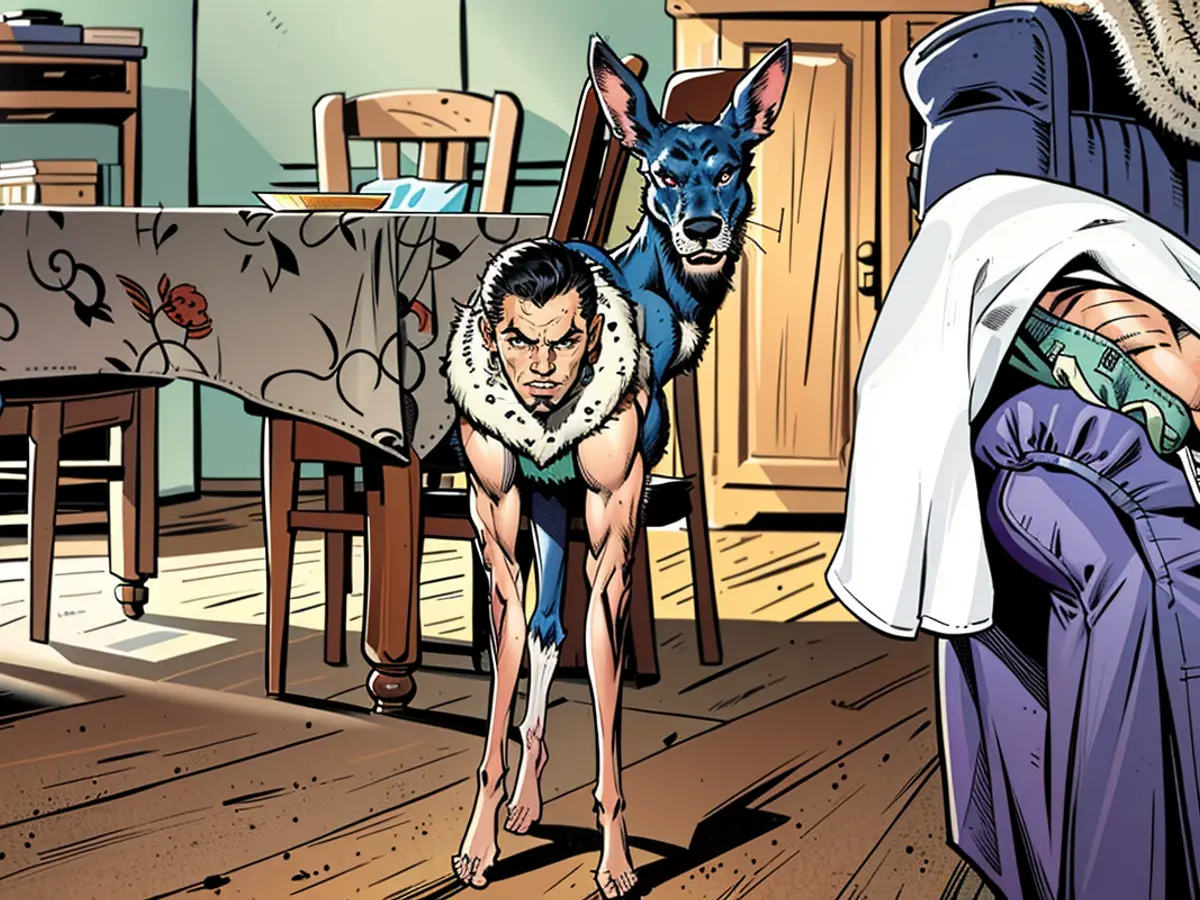Family in Dithmarsh accommodating deer inside their living space.
In Dithmarschen, a compassionate individual tends to distressed animals. Among her charges is a fawn whose mother met an unfortunate end through an accident. This fawn, affectionately known as Timmi, has developed a unique attachment to its foster mom and has an unconventional resting spot.
This deer, which has been holing up in a western Schleswig-Holstein residence for the past two years, spends its days frolicking with its peers across Dithmarschen's vast fields. "Despite attempts to release it back into the wild, Timmi had other plans," shared the woman who looks after it.
The caretaker, who has a background in farming, has been providing refuge for numerous animals in the past.
In the spring of 2022, she was informed by her nephew, a local hunter, about a doe that had been struck by a vehicle and left behind a week-old fawn. The kind-hearted woman took responsibility for the orphaned deer, nourishing it with goat's milk.
"We're grateful that it's survived and gets another opportunity," said the woman. "The garden is open so it can move freely as it pleases." She equipped the deer with a tracking device, ensuring clarity for hunters and constant location awareness for herself.
"Should not be raised independently"
According to the state hunting association, rearing fawns is a task best entrusted to experts. Wild animals are not pets, and the purpose of their upbringing should always be to prevent human-wildlife bonding, suggested wildlife biologist Frank Zabel. "Even if it deviates from their natural habits, fawns should only be raised in groups, not individually," he advised. The risk of the animals becoming too reliant on humans and eventually struggling in the wild, or even attacking humans in the case of male deer, looms large in such situations.
Zabel pointed to instances where fawns were picked up by humans in fields due to their distressful calls for their mother. "At a certain age, young deer can grow bored when the mother is absent, displaying similar behavior to humans," said Zabel. However, it's crucial to remember that this comes at the expense of the animals.
The following statement was made by the state hunting association: "Rearing fawns is a task best entrusted to experts." Additionally, wildlife biologist Frank Zabel suggested, "Even if it deviates from their natural habits, fawns should only be raised in groups, not individually."






